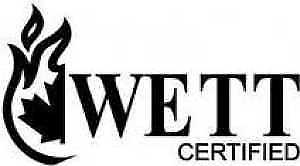
It says northern Europe but really is more the Scandinavian countries. They all love burning wood – lots of wood and have done if for generations. However overall they are also some of the most environmentally-conscious nations on the planet. A contradiction, surely, how can this be? The fact is many in North America think of wood burning stoves as dirty and polluting and in many ways this could not be further from the truth. In fact unlike fossil fuels, wood is essentially carbon neutral!! Another blog for that one. Reality is that wood-burning stoves sometimes get bad press and it is often one pushing their specific agenda and not pushing fact or truth. However, Sweden, Norway and Finland are among the lowest for mean population exposure to wood burning particulate emissions anywhere. So how can a country with MORE wood-burning have fewer emissions? First, it’s important to understand their mindset and mentality towards solid fuel use is quite different from many others. They have all used stoves for a very long time and grew up with them and they are all well-versed in what to burn, how to burn and how to maintain their solid fuel burning installations. For them the sourcing and storing of firewood is part of their culture. They do not have rules or regulations on wood, they all know not to burn wet wood, and they do not burn it. So if they get wet wood, they then season it themselves or they ensure that they buy it already fully seasoned. They all however have proper regulatory rules on the installation of wood burning appliances as well as sweeping, servicing and maintaining. And reality is they DO FOLLOW the rules. We in Canada it seems have few rules and love to ignore the ones we have. In the Scandinavian countries sweeps have extensive training and MUST go through it. We have training here and certifications however we do not need to take it to become a sweep! In the Scandinavian countries most will have their chimneys swept annually and every few years a mandatory inspection is completed by the sweep. Any faults reported by the sweep MUST be fixed. Sadly here over half the sweeps are not certified and are NOT qualified to provide information on what is good or bad in any installation. In those Scandinavian countries any home which is sold must be inspected by a Certified Sweep before sale and any problems corrected. In those Scandinavian countries any installation, regardless of who does it, can not be used until it is signed off by a Certified Chimney Sweep. If the sweep does not accept it, then it must be fixed. Reality is, and any WETT instructor will tell you this, certified sweeps are by far the most knowledgeable people in the industry. These Scandinavian countries also have installation regulations, as do we in Canada. There is a different way they measure to combustibles, it is not measured in inches or millimeters as we do here, but it is measured in temperature. They also measure differently as we generally use a chimney fire or worst case scenario as a threshold to calculate distances in a lab. They however do it as a temperature buildup over time in normal use versus worst case scenario. This works for them as they maintain their systems and have them professionally cleaned on a regular basis, this would not likely work here. They also have different rules on flue pipes, draft measurements, etc. In the end it works for them and the do a better job than we do, however that all falls back on the certifications and mandates that the sweeps are certified to work. They have training, education and certifications which are mandatory. The owners and users have high level of knowledge of wood storage, seasoning and use. Overall this leads to lower environmental impacts. On the flip side, the prices that a sweep can charge is regulated. Here good installers would have nothing to fear from this, however there are many questionable ones out there as well. Uncertified sweeps would no longer have a job.. until they step up their game and get certified. We have a ways to go to get as good as our other northern neighbours on the other side of the globe.
